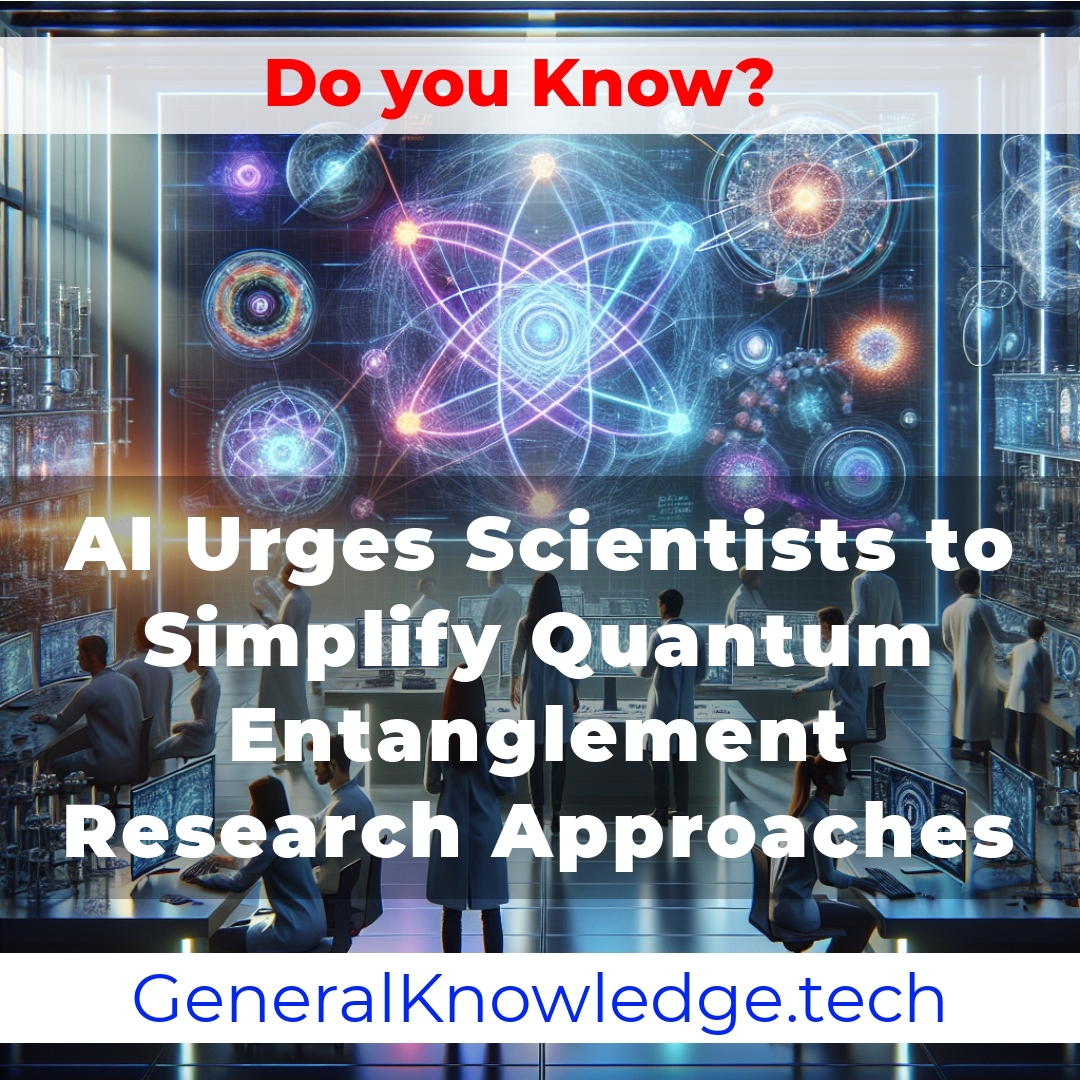Quantum entanglement is a cornerstone of modern physics, fundamentally altering our understanding of the universe. As scientists dive deeper into this intriguing phenomenon, the integration of artificial intelligence (AI) is emerging as a transformative force in quantum entanglement research. This article examines how AI in quantum research is reshaping methodologies, simplifying quantum physics, and fostering groundbreaking discoveries.

### The Role of AI in Quantum Research
Quantum entanglement isn’t just a theoretical concept; it has significant implications for advancements in technologies such as quantum computing and cryptography. As researchers explore the intricacies of quantum phenomena, AI is proving to be a game-changer, simplifying quantum entanglement research and making complex concepts more approachable.
At its essence, AI represents the simulation of human intelligence in machines designed to learn and adapt. In various scientific disciplines, including quantum physics, AI has demonstrated exceptional capabilities in data analysis, pattern recognition, and predictive modeling. With the advent of AI in quantum research, scientists are now equipped to tackle complex problems that require extensive computational resources and sophisticated algorithms.
### Simplifying Quantum Physics with AI
AI-driven methodologies are revolutionizing the exploration of quantum entanglement, allowing researchers to investigate this phenomenon more efficiently than ever before. For example, AI can swiftly analyze extensive datasets, helping scientists discern patterns and correlations that would otherwise take considerable time to uncover manually. Advanced algorithms tailored for analyzing quantum states empower researchers to manipulate these states with unmatched precision. This not only enhances our comprehension of quantum entanglement but also opens new pathways for technological innovation.
A notable instance of AI’s influence in quantum entanglement research is its application in optimizing the creation of entangled particles. Recent studies have shown that AI can streamline existing methods, making the understanding of quantum entanglement more accessible for both researchers and students. Additionally, AI’s ability to reinterpret established quantum theories has facilitated the development of new models, challenging traditional concepts and enriching our grasp of quantum mechanics.
### The Future of AI in Quantum Research
Artificial intelligence is not merely an auxiliary tool; it serves as a catalyst for innovation within quantum research. The potential for AI to simplify complex quantum theories can make them more digestible for a wider audience. Imagine a future where AI simplifies the intricate details of quantum mechanics and quantum entanglement, leading to rapid advancements in technology, such as quicker quantum computers and enhanced cryptographic systems.
Moreover, the incorporation of AI techniques into quantum physics paves the way for a promising future. Researchers increasingly view AI as an essential collaborator in deciphering the complexities of quantum entanglement. As this field evolves, we can expect a surge of discoveries stemming from AI analysis, enabling scientists to refine their approaches to quantum state manipulation. This progression not only deepens our understanding of quantum mechanics but also plays a vital role in technological advancement.
### Conclusion
The intersection of AI and quantum entanglement represents an exhilarating frontier in modern physics. The capacity of artificial intelligence to simplify complex theories and fuel innovation is invaluable. Continued investment in AI-driven methodologies is essential for propelling future advancements. With AI’s assistance, the complex world of quantum entanglement is becoming increasingly clear, fostering a richer appreciation for the mysteries of quantum mechanics and the technologies it inspires.
### FAQ
**What is quantum entanglement?**
Quantum entanglement is a physical phenomenon where two or more particles become interconnected, such that the state of one particle instantaneously influences the state of another, regardless of the distance separating them. This concept is fundamental to quantum physics and has profound implications for our understanding of the universe.
**How does artificial intelligence contribute to quantum entanglement research?**
AI enhances quantum research by enabling scientists to analyze complex datasets, recognize patterns, and develop predictive models. Through AI, researchers can manipulate quantum states with greater accuracy and efficiency, leading to deeper insights into quantum entanglement.
**What are some practical applications of quantum entanglement?**
– **Quantum Computing:** Utilizing entangled particles for performing complex calculations significantly faster than traditional computers.
– **Quantum Cryptography:** Improving communication security through the principles of entanglement.
**Can AI simplify quantum mechanics for researchers and students?**
Absolutely! AI has the potential to clarify intricate theories, making quantum mechanics more accessible. By automating the analysis of quantum states, AI can ease the learning curve for students and researchers alike.
**Are there notable studies where AI has positively impacted quantum entanglement research?**
Yes, several studies have demonstrated that AI can enhance the efficiency of entangled particle creation, streamlining existing methods and deepening our understanding of quantum entanglement.
**What does the future hold for AI in quantum research?**
The role of AI in quantum physics is expected to expand, leading to more discoveries and innovations in quantum state manipulation. As researchers continue to explore this intersection, we can anticipate significant advancements in both quantum theory and technology.
**Why is investment in AI-driven research important?**
Investing in AI methodologies is crucial as it enhances the potential for groundbreaking scientific discoveries and technological advancements. AI provides the necessary tools to address the complexities of quantum mechanics, paving the way for future innovations.






